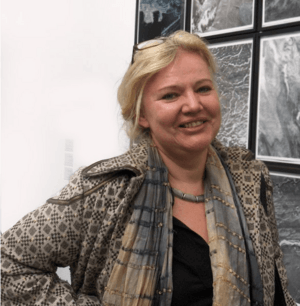Cathrine Hasse facts for kids
Cathrine Hasse (born in 1956 in Denmark) is a professor who studies culture, learning, and technology. She teaches at the University of Aarhus in Denmark. Her work looks at how these three things connect and influence each other.
Her Education
Cathrine Hasse finished her studies in anthropology in 1994. She studied at the University of Copenhagen in Denmark. Anthropology is the study of human societies and cultures. In 1996, she earned her Ph.D. there. A Ph.D. is a very high university degree.
Her Career and Research
From 2000 to 2001, Cathrine Hasse worked at a research center in Copenhagen. In 2002, she became a professor at the Department of Education at the University of Aarhus. By 2009, she became a special professor at the Institute of Education and Pedagogy, also at the University of Aarhus. Since 2013, she has led a research program called Future Technologies, Culture and Learning in Copenhagen.
Cathrine Hasse has also been a visiting professor at other universities. This includes the University of Oxford in 2013. She also worked at the Danish Institute for Science and Art in Rome, Italy. There, she studied how culture affects natural sciences.
She has led several big research projects with teams from different countries. These projects include:
- Understanding Puzzles in the Gendered European Map (2005-2008), which was an EU project.
- The Cultural Dimensions of Science (2002-2005), a project between Denmark and Italy.
- Technucation (2011-2015), which looked at how people understand and use technology.
Besides her research, Cathrine Hasse has written articles for the Danish newspaper Dagbladet Information. She has also been a member of several important boards. For example, she was on the board of the Department of Education at the University of Aarhus. She was also on the board of Oxfam IBIS, a non-profit organization. Since 2009, she has been part of the board of examiners for anthropology studies at the University of Copenhagen. She also examines techno-anthropology studies at Aalborg University since 2012.
 | Frances Mary Albrier |
 | Whitney Young |
 | Muhammad Ali |


